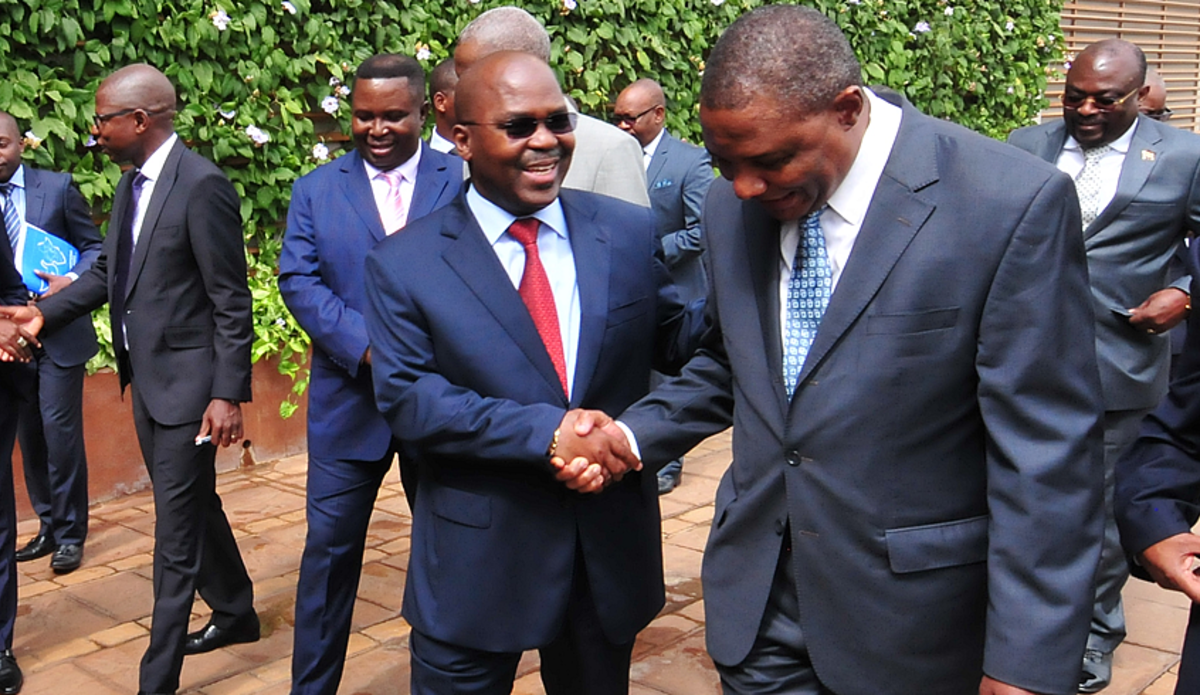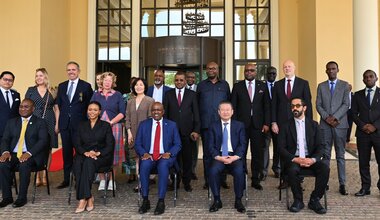Africa’s Great Lakes region determined to eradicate all negative forces in eastern DRC
Nairobi, 20 July 2016 – Ministers of Defense from the Great Lakes region met in Nairobi on 20 July 2016 to review progress on the neutralization of negatives forces in eastern Democratic Republic of the Congo (DRC) and the region, as well as to further refine the common strategy to cut-off their illegal trade activities in the region.
Over the past years, the governments of the Great Lakes region and the international community have supported the DRC in its efforts to fight negative forces within its territory. The neutralization of armed groups in eastern DRC remains essential to bringing stability to the DRC and the region. In this regard, the UN Security Council Resolution 2277 (2016) encouraged the Government of the DRC, with support from the Special Envoy of the Secretary-General for the Great Lakes Region, to engage regional actors in finding a durable solution to the repatriation of disarmed FDLR members and their dependents.
The International Conference on the Great Lakes Region (ICGLR) held several extraordinary summits, including one joint special summit with the Southern African Development Community (SADC) dedicated to the issue of negative forces. In the final declaration of the last ICGLR Summit held in Luanda, Angola, on 14 June 2016, the Heads of State and Government recommended further support for the Armed Forces of the Democratic Republic of the Congo (FARDC) and the United Nations Stabilization Mission in the DRC (MONUSCO) to continue to work together to neutralize all negative forces. They also urged the UN and other concerned parties to accelerate the repatriation of disarmed ex-combatants of the Democratic Forces for the Liberation of Rwanda (FDLR) in the cantonment camps to Rwanda or resettlement to a third country outside the region.
Despite these efforts, the region remains largely confronted with the presence of such negative forces as the FDLR, the Allied Democratic Forces (ADF), and other remnant groups equally harmful to regional peace and stability. These forces, which continue to commit acts of violence and human rights abuses are also involved in the illegal exploitation of natural resources as a means of survival. Moreover, they contribute to a climate of tension and mistrust among the countries of the region.
“As we engage in discussions on effective action to neutralize armed forces operating in eastern DRC, it is important to recall the impact these negative forces have on the daily lives of the vulnerable populations in the region,” United Nations Special Envoy for the Great Lakes, Said Djinnit, said in his introductory remarks. “We must ensure that protection of civilians from all forms of violence, remains a priority in our actions to neutralize armed groups,” he concluded.
The meeting brought together ministers of Defense from the DRC, Rwanda, Burundi, Uganda, and the troop contributing countries of the Force Intervention Brigade of MONUSCO, namely South Africa, Tanzania and Malawi, as well as Angola, in its capacity as Chair of the ICGLR; Mozambique as Chair of the SADC Peace and Security Organ; and the ‘Guarantors’ of the Peace, Security and Cooperation Framework Agreement, namely the UN, AU, ICGLR and SADC.
The participants adopted an outcome document containing recommendations on the way forward to be submitted to the respective Ministers of Defense of ICGLR and SADC in preparation for their next Joint Summit of Heads of State and Government of the region.
 UN
UN





